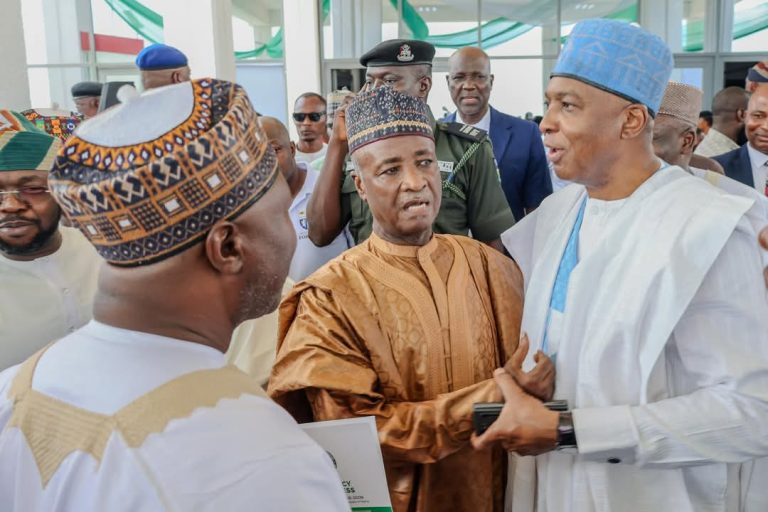Former Senate President, Dr. Abubakar Bukola Saraki, has released the text of a powerful address he had prepared to deliver during today’s joint session of the National Assembly to mark Nigeria’s 2025 Democracy Day celebration.
Although invited and present at the ceremony attended by President Bola Ahmed Tinubu and other top dignitaries, Saraki’s remarks were omitted due to time constraints in the programme.
In a written statement titled “The National Assembly and Nigeria’s Democracy in the Last 26 Years”, Saraki said it was important to share his thoughts with the Nigerian public, despite not getting the opportunity to speak at the podium.
Saraki began by congratulating Nigerians on the 26th anniversary of uninterrupted democratic governance, emphasizing that the journey has been shaped by the resilience and sacrifices of both known and unknown heroes.
“From political leaders to the unsung protesters who gave their lives and livelihoods, we owe our presence here today to them,” Saraki wrote.
He commended President Tinubu for choosing the National Assembly as the venue for this year’s Democracy Day celebration, describing the legislature as the true symbol of democratic governance.
“This symbolic action speaks volumes. Among the three arms of government, the one that best symbolizes, represents, and exemplifies democracy is the parliament,” he said.
Recalling major milestones, Saraki cited historic acts of courage by previous assemblies, including the resistance to military rule in the early 1990s, the rejection of the controversial third-term agenda, the invocation of the Doctrine of Necessity during a constitutional crisis, and the defence of legislative independence during the 8th Assembly.
“These moments define the soul of our democracy. But today, I must admit with concern that the National Assembly is becoming a shadow of what it once was,” he warned.
Saraki was blunt in his assessment of the current state of legislative power, asserting that both the executive and judiciary have played roles in weakening the National Assembly.
“From interference in its leadership choices to misinterpreting its oversight duties as antagonism, this institution has suffered systematic attacks,” he said. He called for a conscious collective effort to restore its strength and relevance, warning that a weakened parliament leaves citizens with no option but to return to the streets — a dangerous sign for any democracy.
Looking to the future, Saraki urged deeper youth involvement, particularly following the “Not Too Young to Run” legislation, and emphasized the need for greater female representation in the legislature.
In a rare personal note, Saraki expressed appreciation to current Senate President Godswill Akpabio for ensuring his portrait was restored to the Senate Gallery — after being missing for four years. “If it were another time, they would have looked at the body language of the President and my invite would have gotten missing,” he said.
He concluded with a reminder that healthy parliaments must uphold multi-party democracy and give room for both majority and minority voices.
“The voting system is ‘AYE’ and ‘NAY.’ It is not expected to be one-sided, one party, or one way,” Saraki wrote.
While he was not given time to speak in person, Saraki’s released remarks are already sparking debate online and within political circles, touching nerves on the state of Nigeria’s democracy and the independence of its institutions.


